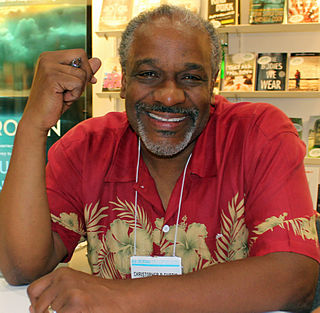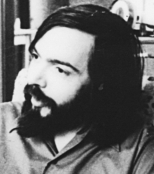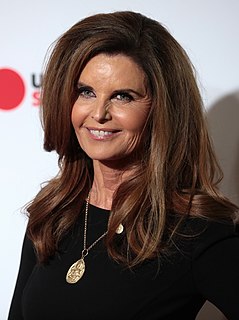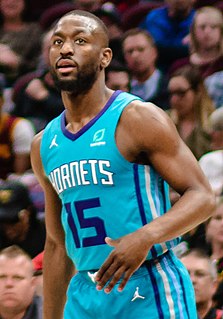A Quote by Christopher Paul Curtis
I try to make the writing as regular and regimented as possible. I usually get up at around 5 a.m. and read what I wrote the day before. Some of the time, after I read, I think the writing's very good and some of the time I feel embarrassed by what I've written. You have to learn not to pay too much attention to these feelings.
Related Quotes
A typical workday for me is getting up at about 5:00, 5:15 in the morning, getting some coffee or tea as quickly as possible, and then getting to my desk. And ideally, I'll start writing around 5:30, 5:45, and I'll write for three, four hours, and then I'll take a break, and read over what I write. Maybe about lunchtime, I'll go exercise or get out into the day. Then I'll either read over what I wrote the day before and quit work around 3:00 or 4:00 in the afternoon and spend some time with my kids.
I liked to write from the time I was about 12 or 13. I loved to read. And since I only spoke to my brother, I would write down my thoughts. And I think I wrote some of the worst poetry west of the Rockies. But by the time I was in my 20s, I found myself writing little essays and more poetry - writing at writing.
After I quit being a lawyer in '95, I was having a lot of trouble writing. Then I read somewhere that Willa Cather read a chapter of the Bible every day before she started work. I thought, 'Okay, I'll try it.' Before each writing session, I started to read the Bible like a writer, thinking about language, character, and themes.
You learn so much with each book, but it's what you teach yourself by writing your own books and by reading good books written by other people - that's the key. You don't want to worry too much about other people's responses to your work, not during the writing and not after. You just need to read and write, and keep going.
There's no such thing as a folk writer. There's no such thing as somebody who's never read a book before suddenly sitting down one day and writing one. You have to learn how to captivate a reader. Right? And I don't mean you have to go to school for it. But if you're - if you pay attention, you can learn it by reading books. And so I feel like I learned a lot by reading books.
I'm not a good writer, and I don't care. Unfortunately, after I left college, I didn't have time much for literature. I wish I did. Most of the time I read documents, and that's not going to help your writing. But I'm a very logical writer, and you can't get out of me. Once I've nailed you, you're finished.
You're writing for some version of yourself. You're writing the kinds of things that you like to read or wanted to read at a certain point. So, primarily for most of my career, I've written the kind of criticism that fascinates me. The things I discovered the things that get me going, that I'm excited about.
I have a hard time writing. Most writers have a hard time writing. I have a harder time than most because I'm lazier than most. [...] The other problem I have is fear of writing. The act of writing puts you in confrontation with yourself, which is why I think writers assiduously avoid writing. [...] Not writing is more of a psychological problem than a writing problem. All the time I'm not writing I feel like a criminal. [...] It's horrible to feel felonious every second of the day. Especially when it goes on for years. It's much more relaxing actually to work.






































